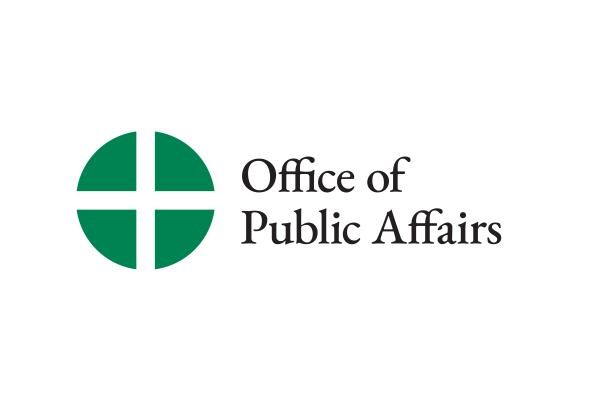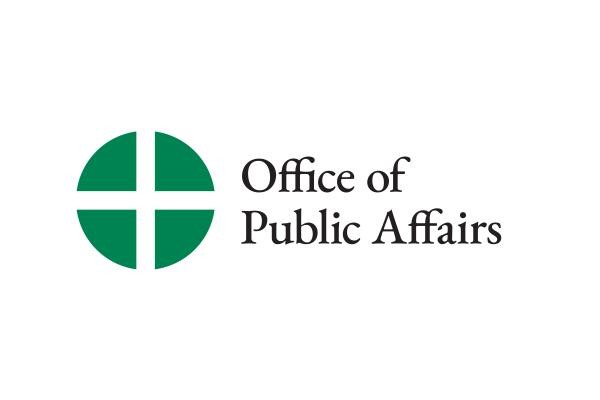Lutheran-Catholic Dialogue Studies Eucharist as Part of its 'Hope of Eternal Life' Theme
WASHINGTON—The U.S. Lutheran-Roman Catholic Dialogue added a study of the Eucharist to its discussions on the theme "Hope of Eternal Life." The dialogue took place at St. Paul's College, Washington, and was the sixth meeting of Round XI in the historic relationship that began 43 years ago at the e
WASHINGTON—The U.S. Lutheran-Roman Catholic Dialogue added a study of the Eucharist to its discussions on the theme "Hope of Eternal Life." The dialogue took place at St. Paul's College, Washington, and was the sixth meeting of Round XI in the historic relationship that began 43 years ago at the end of the Second Vatican Council.
The dialogue has been exploring beliefs and practices related to Eternal Life in Jesus Christ since it began the new round in 2005. At the recent session, participants welcomed Msgr. John Radano, former Undersecretary of the Pontifical Council for Promoting Christian Unity, as part of a new discussion on consensus and disagreement on Eucharistic doctrine. This new initiative is the result of conversations between Pontifical Council and the Presiding Bishop of the Evangelical Lutheran Church in America (ELCA), Rev. Dr. Mark Hanson.
"The Eucharist is the place of encounter with Christ who is Eternal Life," said Father James Massa, Executive Director of the Secretariat for Ecumenical and Interreligous Affairs of the U.S. Conference of Catholic Bishops, and also one of the two staff coordinators of the dialogue. "I see it as particularly appropriate that we take up Bishop Hanson's proposal precisely at a time when the dialogue team is talking about prayers for the deceased, as part of its overall treatment of Eternal Life. For many Christian believers the Eucharist is the preeminent prayer of thanksgiving for Christ's life-giving sacrifice, to which he joins all of the faithful, living and dead."
The dialogue adopted a timeline for the conclusion of the current round, which includes a review process for successive drafts of a Common Agreement on Eternal Life. Drafters have already presented portions of a draft text that treat the topic from a biblical-historical, systematic, and pastoral standpoint. "I expect the report, when completed, will be helpful to both pastors and members of parishes," said the Rev. Lowell G. Almen, Lutheran co-chair of the U.S. dialogue and former secretary of the ELCA, in an earlier interview this year. The dialogue includes two participants from the Lutheran Church-Missouri Synod: Rev. Dr. Samuel H. Nafzger, Executive Director, Theology and Church Relations Lutheran Church- Missouri Synod; and Rev. Dr. Dean Wenthe, President of Concordia Theological Seminary.
The next session of the dialogue will take place in Washington, March 12-15. At that time, participants will examine a complete draft of the common statement and also consider the contents and format of a possible publication that would include the statement along with a series of essays based on papers that have been presented over the course of the round.
Participants in the October 2008 meeting mourned the loss of one of the longest serving members of the dialogue, the Rev. Dr. John Reumann, Professor Emeritus of New Testament and Greek at The Lutheran Theological Seminary in Philadelphia. He died June 6, after a long illness. At a Lutheran service of the Eucharist, Jesuit Father Joseph A. Fitzmyer, Professor Emeritus of The Catholic University of America, Washington, eulogized Rev. Reumann and recalled their years of collaboration, which included several publications on ecumenical topics from a biblical perspective. Father Fitzmyer noted that the dialogue's farewell to Rev. Reumann was a moment of sadness and of joy: "of sadness, because of the loss we all have in the passing of this good Christian pastor and teacher, but also of joy, because we know that God has taken Jack to himself."
Additional Catholic participants in the dialogue include the co-chair, Bishop Richard J. Sklba, Auxiliary Bishop of Milwaukee and Chairman of the Committee for Ecumenical and Interreligious Affairs (USCCB); Margaret O'Gara, Ph.D., University of St. Michael's College, Toronto; Christian Brother Jeffrey Gros, Memphis Theological Seminary, Memphis, Tennessee;. Christian David Washburn, Ph.D, Saint Paul Seminary, St. Paul, Minnesota; Jesuit Father Jared Wicks, John Carroll University, University Heights, Ohio; and Sister Susan Wood, a Sister of Charity of Leavenworth, Marquette University, Milwaukee.
Lutheran members include The Rev. Winston D. Persaud, Wartburg Theological Seminary, Dubuque, Iowa; Michael J. Root, Ph.D., professor of systematic theology and dean, Lutheran Theological Southern Seminary, Columbia, S.C.; Rev. Dr. Lowell Almen, co-chair of the Lutheran-Catholic Dialogue; Rev. Stephen J. Hultgren, assistant professor, Department of Theology, Fordham University, Bronx, N.Y.,; Rev Theodore W Asta Associate to the Bishop (Ecumenism and Administration) New England Synod — ELCA; Rev. Marcus J Miller, Bishop Northeastern Ohio Synod — ELCA; Rev Paul Schreck, ELCA - Office of the Secretary.


